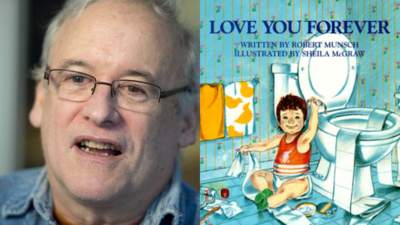ARTICLE AD BOX

Robert Munsch, the storyteller behind childhood staples like Love You Forever, The Paper Bag Princess and Mortimer, has quietly chosen to end his life through Canada’s medical assistance in dying (MAID) program, after a diagnosis of dementia and Parkinson's disease, CBC Canada reported.
The news landed like a gut-punch for many readers who grew up with his loud-voice, crowd-pleasing readings: a beloved author deciding, on his own terms, to take a path not everyone understands but that’s legal in his country. Munsch, who has been public about health struggles before, told interviewers in 2021 that he’d been diagnosed with dementia and that his ability to write and perform stories was slipping. Canada’s MAID regime (expanded in recent years) allows eligible adults to request medical assistance to die under defined circumstances, and it’s been used increasingly across the country.
For many, it’s framed as an option for dignity and control when a future filled with decline feels unbearable; for others, it raises big ethical, religious and emotional questions about how societies care for ageing, disability and terminal illness.
Reporting on Munsch’s decision immediately sparked both sympathy and debate — because he’s both an icon and a person facing a deeply personal choice. What’s striking about Munsch’s case is how it makes the abstract very human.
People who loved growing up with his stories are reacting online with grief, nostalgia and, for some, gratitude that he made a choice he felt was right. Munsch’s life wasn’t defined only by his books; he’s been open about mental-health struggles and recovery in the past, and he had a stroke in 2008 that changed his relationship to memory and storytelling. Robert Munsch has often said that family shaped his stories as much as his imagination did.
Born in Pittsburgh, he grew up in a large Catholic household with eight siblings. Later, after moving to Canada, he and his wife, Ann, adopted three children, who became the heart of many of his books. Their experiences — bedtime routines, sibling squabbles, little moments of joy — turned into the stories generations of kids still cherish.
Robert Munsch has long credited his wife, Ann, and their children as the inspiration behind many of his most beloved stories. The couple adopted three children after moving to Canada, and the everyday joys and struggles of parenthood often became the seeds for his books. Love You Forever, for instance, was written as a tribute to the couple’s babies who were stillborn, later becoming one of the most cherished picture books in North America. Though Munsch has kept his family life relatively private, he has often shared that Ann and the kids were his greatest source of love, grounding, and creativity.



.png)
.png)
.png)
















 2 hours ago
2
2 hours ago
2









 English (US) ·
English (US) ·